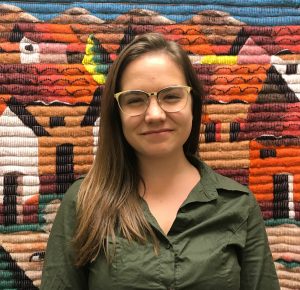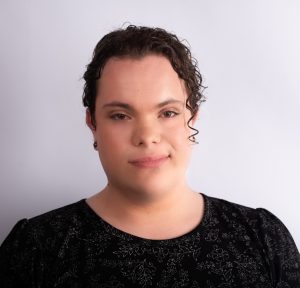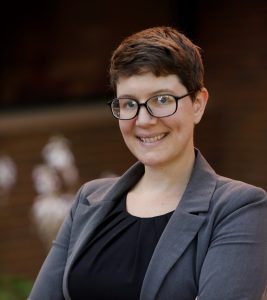Archives
We Must Make The Most Of The Coming Change
Sumner Elementary students showcase diverse nationalities through Welcome Walk
Trump’s asylum ban is his worst betrayal of American values
A Force for Good
Riverland celebrates new US citizens by welcoming them
So Grateful: For Refuge, Citizenship, College, and Family
September marks a new school year for students across Minnesota. Classrooms throughout the state are filled with eager students ready to start making a mark in their community. For Pwe Ku, a first year student at St. Cloud University, this is an opportunity he does not take for granted.
Pwe Ku arrived in Minnesota from Burma (Myanmar) when he was six years old. He doesn’t remember much about his country of origin, except for stories told by his mom. His family spent the first six years of Ku’s life in the Mae La refugee camp in Thailand before moving to Minnesota.
“I was a kid then, so I probably didn’t really realize how hard life was until she explained it later,” Ku explained. “In the refugee camp it’s hard to find work and the rations really aren’t enough to get by. We have a big family so it’s hard. There’s always worries. Anything could happen at any time.”
Ku’s family was forced to leave Burma (Myanmar) due to the longest civil war in world history — a war spanning more than 70 years. Internal conflicts began shortly after the country gained independence from the United Kingdom in 1948. The fighting and dangerous environment eventually forced Ku’s parents to flee from their home.
One constant throughout his family’s ordeal has been their faith.
“We kept our faith in God really strong,” remembers Ku. “My mom called a prayer time every evening. She would give us a history and a background of our people and our family.”
Now, Ku and his family members are all proud citizens of the United States. Within the last three years, Ku’s three older siblings and his parents have all passed the citizenship test. Ku and his little sister were both under 18 when their parents received citizenship, so they did not have to take the test.
“One thing people should know is that [refugees] don’t take things for granted,” repeated Ku. “It’s a special opportunity. We have to work as hard as the first pilgrims when they came here, learning the environment, their surroundings. And although there are opportunities, there are side effects too. It’s good to be integrated into the American culture, but too much isn’t a good thing either. We try and live for the freedom that we’re given the best way we can and at the same time we are trying to give back to the American community.”
Ku’s experience as a child in a refugee camp, combined with his desire to give back to his community, lead him to choose biology (pre-med) as his field of study.
“I want to do something that will benefit both myself and others,” Ku said. “I’ll be attending St. Cloud University. Majoring in biology or music. I want to major in biology for medical school, but I don’t know if I should major or minor in music. It depends on my classes. I was thinking of joining the men’s choir.”
When asked what he is most looking forward to at college he said, “A little bit more freedom and working hard on my majors.”
Ku is thankful to the Worthington community for the opportunities he has been given. He does not take any of it for granted.
“As a refugee and immigrant I really appreciate how America and other UN [United Nations] countries have helped immigrants and given us an opportunity to have a better life and higher education. And most importantly I want to thank God for making everything possible.”
Staff Changes at ILCM
Four full-time staff members transitioned into new positions at ILCM this summer and we are excited to welcome five new staff members and our fall interns and volunteers.

Kyle Smestad joined ILCM in 2017 after working with several nonprofits and political campaigns. In August 2019, he transitioned into the full-time position of grants manager. Kyle has held development and fundraising positions with OutFront Minnesota, Senator Al Franken’s 2014 reelection campaign, Councilmember Alondra Cano’s 2013 campaign, and several other local campaigns and organizations. Most recently, he was a member of the national development team for College Possible, which serves low-income students as they earn their college degrees. Kyle graduated from North Dakota State University in 2013 with degrees in Political Science and Spanish.
Stephanie Rosario-Alvarez transitioned into the full-time position of office manager this summer. She earned a degree in Business Administration and is fluent in Spanish and English language. She has over twelve years of customer service experience in both the medical and legal fields and has worked at ILCM as administrative assistant since 2010.

Maggiy Emery joined ILCM’s development team in 2018 after several years working in campaign fundraising. In August 2019, she transitioned into the full-time position of development coordinator. Maggiy held finance positions with former Minneapolis city council member Gary Schiff and Minnesota’s second Congressional district Representative Angie Craig. She also spent time as a program officer with The Open Door, working to provide food security in the south suburbs of the Twin Cities. Most recently, she led the fundraising team for Minnesota’s first Congressional district candidate Dan Feehan.
Mari Arneson began working at ILCM in August 2018 through Lutheran Volunteer Corps and this July 2019 she happily joined ILCM in the permanent position of communications associate. She is excited to continue supporting with immigrants and refugees through her work at ILCM.
Along with these staff changes, ILCM is excited to welcome five new staff members and eight fall interns and volunteers.
Shenelly Perez-Beltran started working at ILCM in August as our new receptionist. Before joining ILCM, she studied at Summit Academy OIC and she is a certified nursing assistant (CNA) at Presbyterian Homes & Services. She is excited to learn more about the US immigration system and work with an organization whose values mirror her own.
Veena Iyer joined ILCM in September 2019 as the new executive director. To learn more about her, click here.

Simeon Huff joined ILCM in August 2019 through Lutheran Volunteer Corps. They will work as a legal assistant on a variety of projects and cases for the next year. They graduated from Berea College in May 2019 with a degree in Sociology and Spanish.

Mary Georgevich joined ILCM in September 2019 as an Equal Justice Works Fellow. Her project focuses on the representation of detained Somali people. Prior to joining ILCM, Mary clerked for the Honorable Anne McKeig of the Minnesota Supreme Court. She graduated from the University of Minnesota School of Law in 2018. Mary will be working with ILCM for two years.
Gabriel Andrus began working with ILCM in September 2019 as a legal assistant through the University of Minnesota Public Interest Residency Fellowship. He is currently studying at the University of Minnesota School of Law. Prior to joining ILCM he clerked for the public defenders’ office in Dakota County Minnesota. He has international experience and he joined ILCM to work with people of international background and help contribute to their welfare.
ILCM will also say goodbye to Mirella Ceja-Orozco in September 2019. She will continue to work with immigrants and refugees at the Ojala-Barbour Law Firm.
Best Bets: Austin to kick off Welcoming Week
Asylum Ban Regulation Betrays Vulnerable People and Violates U.S. Asylum Law
September 12, 2019—Wednesday’s Supreme Court decision allows the Trump administration to basically end asylum at the southern border, in a deadly betrayal of U.S. law and international humanitarian principles. While a final decision on the asylum ban regulation is still months away, this decision will be a death sentence for many of the vulnerable asylum seekers now seeking safety.
The asylum ban regulation says that any asylum seekers who cross through a third country will be barred from applying for asylum in the United States.
“Barring asylum seekers is a gross violation of basic human rights and a violation of U.S. asylum law,” said Veena Iyer, executive director of the Immigrant Law Center of Minnesota. “Turning away persecuted asylum seekers in 2019 reminds us of our national shame in turning away 900 Jewish asylum seekers on the SS St. Louis in 1939. We are refusing to grant safe haven to people who will die because of our refusal.”
Among the asylum seekers now barred from the United States are:
- Venezuelans fleeing Maduro
- Nicaraguans fleeing government crackdowns
- Guatemalans and Hondurans and Salvadorans fleeing violence and persecution
- Transgender and LGBTQ people fleeing persecution.
U.S. asylum law says that time spent in a third country is only a bar to people who have passed through a designated “safe third country” or who have “firmly resettled” in a third country. Only Canada is officially designated as a “safe third country.” Neither Mexico nor any Central American country is designated as a “safe third country” for the very good reason that none of these countries is safe for asylum seekers.




